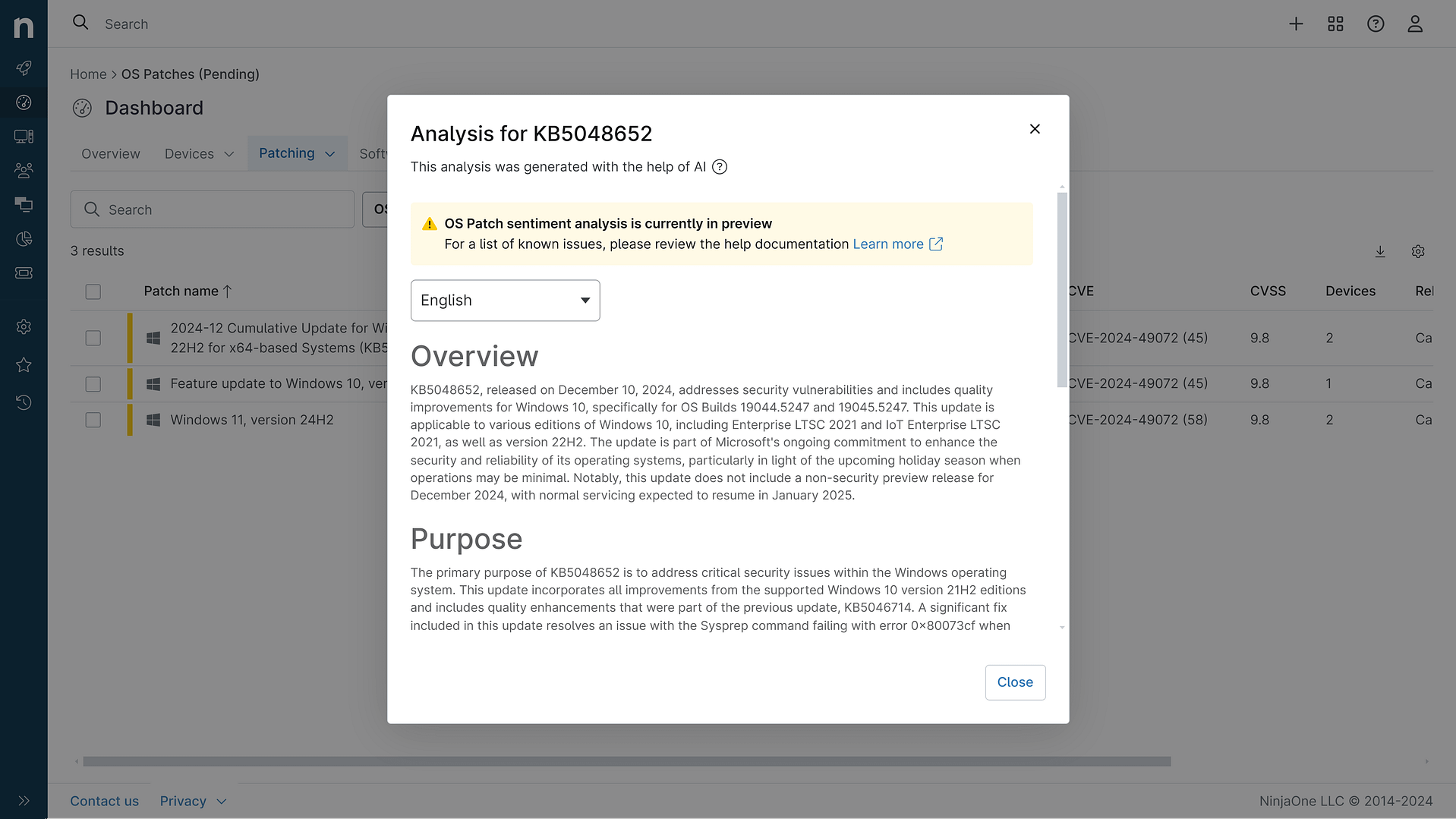KB5048661: Overview with user sentiment and feedback
Last Updated February 7, 2025
Probability of successful installation and continued operation of the machine
Overview
KB5048661, released on December 10, 2024, is a cumulative update for Windows 10 and Windows Server 2019, specifically targeting OS Build 17763.6659. This update is part of Microsoft's ongoing efforts to enhance the security and reliability of their operating systems. It addresses various security vulnerabilities and includes improvements to the servicing stack, which is crucial for the installation of future updates. The update is applicable to Windows 10 Enterprise LTSC 2019, Windows 10 IoT Enterprise LTSC 2019, Windows 10 IoT Core LTSC, and Windows Server 2019. Users are encouraged to install this update to ensure their systems are protected against known vulnerabilities.
General Purpose
The primary purpose of KB5048661 is to address security issues within the Windows operating system. Notably, it resolves a significant problem where Windows fails to activate after a motherboard replacement. This update also includes improvements to the servicing stack, ensuring that the system can reliably receive and install future updates. Users who have installed previous updates will only download the new updates contained in this package, streamlining the update process. Overall, this update is essential for maintaining system integrity and security.
General Sentiment
The general sentiment surrounding KB5048661 appears to be mixed. While many users recognize the importance of security updates and appreciate the fixes provided, there are notable concerns regarding the installation process. Some users have reported issues with the OpenSSH service failing to start after the update, which has led to difficulties in establishing SSH connections. This has raised concerns among enterprise and IoT customers, although Microsoft is actively investigating the issue. The sentiment reflects a cautious optimism, as users understand the necessity of updates but are wary of potential disruptions.
Known Issues
Following the installation of the October 2024 security update, some customers report that the OpenSSH (Open Secure Shell) service fails to start, preventing SSH connections. The service fails with no detailed logging, and manual intervention is required to run the sshd.exe process. This issue is affecting both enterprise, IoT, and education customers, with a limited number of devices impacted. Microsoft is investigating whether consumer customers using Home or Pro editions of Windows are affected. Customers can temporarily resolve the issue by updating permissions (ACLs) on the affected directories. Steps include:
- Open PowerShell as an Administrator.
- Update the permissions for C:ProgramDatassh and C:ProgramDatasshlogs to allow full control for SYSTEM and the Administrators group, while allowing read access for Authenticated Users.
- Use specific PowerShell commands to update the permissions. Microsoft is actively investigating the issue and will provide a resolution in an upcoming Windows update.
Disclaimer: We take measures to ensure that AI-generated content is of the highest possible quality, but we cannot guarantee its accuracy and recommend that users do their own independent research. Generated on 2025-02-07 03:50 PM
